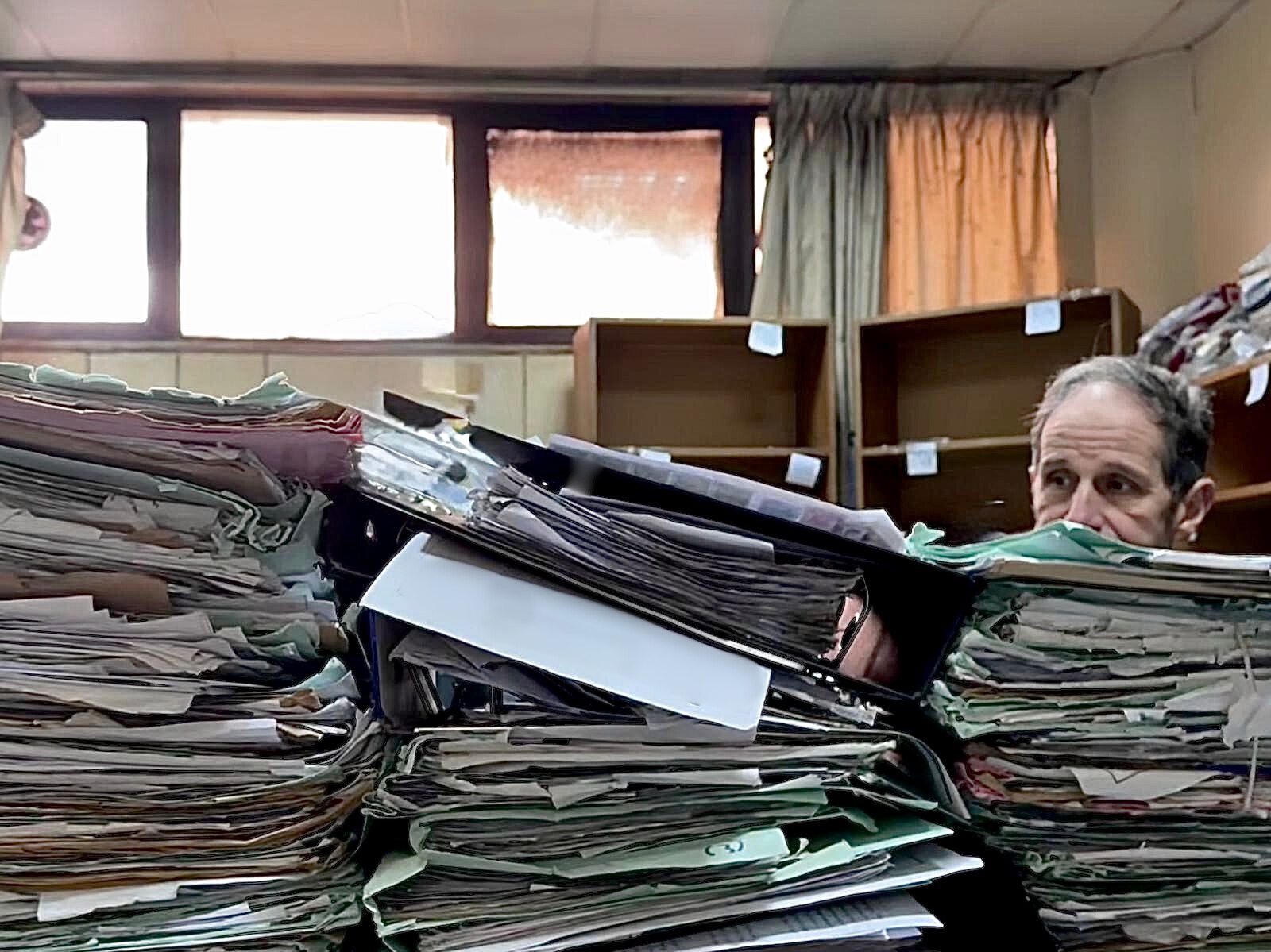
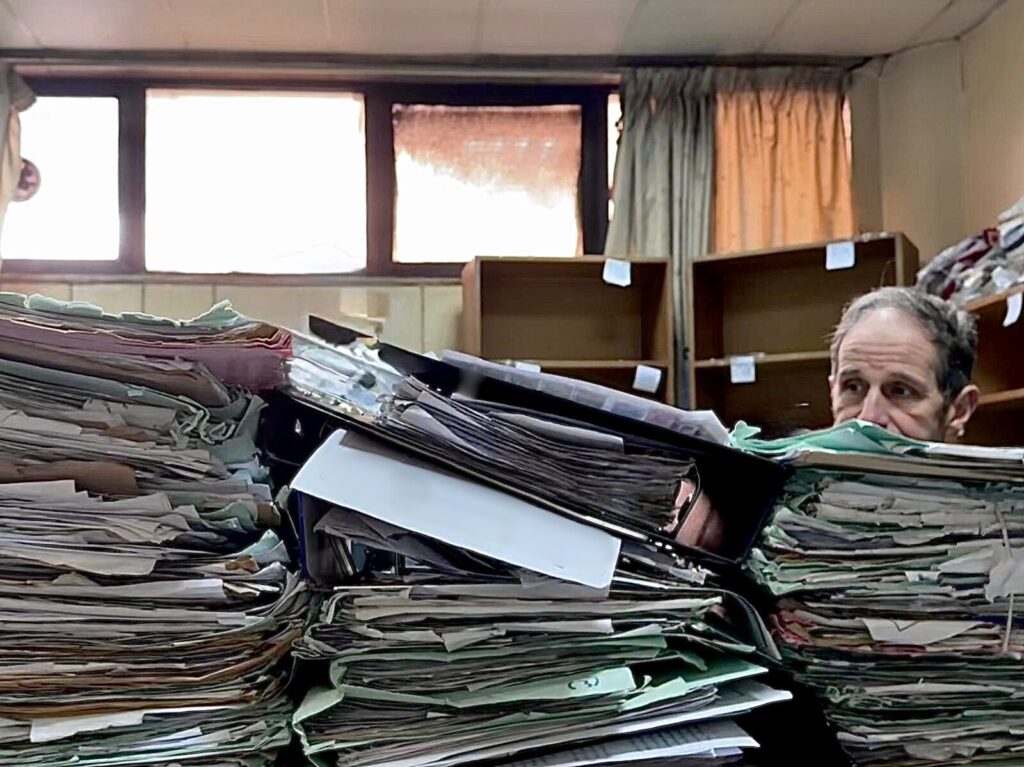
Head of Syria Accountability Mechanism Wraps Landmark Visit to Syria, Calls for International Coordination to Protect Evidence.
Damascus, Syria, 22 December – Robert Petit, the Head of the International, Impartial, and Independent Mechanism for Syria (IIIM), has concluded a historic visit to Damascus, Syria. Coming after the agreement of Syria’s caretaker authorities, it is the first time the IIIM is authorized to enter Syria and can discuss justice and accountability with Syrian officials. A significant milestone, coinciding with the exact date of the Mechanism’s creation eight years ago in 2016.
Mr. Petit’s trip is a critical step in advancing the IIIM’s efforts to preserve the evidence of international crimes committed in Syria and to ensure accountability for those responsible.
“Our ongoing work is to safeguard evidence and support justice processes for the countless victims impacted over the past 14 years,” said Mr. Petit. “The fall of the Assad rule is a significant opportunity for us to fulfill our mandate on the ground.”
After meeting with representatives of the caretaker authorities, the IIIM Head accessed a site of significant interest. “Even at one facility, the mountains of government documentation reveal the chilling efficiency of systemizing the regime’s atrocity crimes,” Mr. Petit remarked.
Mr. Petit highlighted the urgency of preserving the evidence before it is lost forever.
“Time is running out,” he stated. “There is a small window of opportunity to secure these sites and the material they hold. Each day we fail to do so, we risk losing the chance for comprehensive accountability.”
During his visit, Mr. Petit met with a number of Syrians impacted by the crimes committed during the past decade, including those who have recently returned to the country after years of exile. Their testimonies underscored a widespread demand for truth, justice and inclusion.
“Meeting with those who have suffered loss and exile was another sobering reminder of the human cost of this conflict,” said Mr. Petit. “They are asking: Where is the international community? They demand accountability. They want answers about their loved ones, and justice for the crimes committed against them.”
“I was deeply moved by the resilience of the Syrians I met in Damascus, who endured years of unfathomable inhumanity. Men and women from all walks of life are demanding that their voices be heard and that the truth of what they have experienced is brought to light. This is something we are fully committed to at the IIIM, ensuring that our work in support to jurisdictions is centered on Syrian victims and survivors.”
Mr. Petit further emphasized that achieving accountability will require cooperation and coordination among a wide range of actors.
“No single entity can address this challenge on its own,” Mr. Petit noted. “It will take a collective and concerted effort. Syrians, civil society organizations, and international partners leveraging their complementary mandates. As a priority all of us must work to preserve evidence of the crimes committed, avoid duplication, and ensure that all victims are inclusively represented in the pursuit of justice.” He added, “The IIIM was specifically created to assist this effort and is ready to play its part in full. The time to act is now.”
About the IIIM
The International, Impartial and Independent Mechanism (IIIM) is a United Nations organisation, established in 2016 by the UN General Assembly in a landmark vote. It is mandated to assist in the investigation and prosecution of individuals responsible for committing the most serious international crimes (including war crimes, crimes against humanity, and genocide) in Syria since March 2011.
The IIIM works to collect and preserve evidence from multiple sources to support current and potential future accountability proceedings. A significant number of its sources and information providers are Syrian civil society actors.
The IIIM’s work can be used by jurisdictions with the legal authority to prosecute international crimes, thereby supporting accountability for atrocities committed during the Syrian conflict.
It shares information, evidence and analytical products either in response to requests for assistance or proactively with competent jurisdictions.
It integrates a victim survivor centred approach and proactive strategies on gender and children/youth throughout its work, holding regular consultations and engagements with Syrian civil society and victim/survivor communities.
It is not a court or tribunal; it cannot issue indictments or conduct trials and does not have prosecutorial powers.
The IIIM is:
- Independent: Works without external instructions or influences. It does not share details of the justice processes it supports publicly except as authorised by competent jurisdictions.
- Impartial: Works to cover all international crimes committed by all parties in the conflict, no matter the affiliation, without bias.
- Rigorous: Applies international criminal law methodologies throughout all tracks of its work.
Since the start of its operations the IIIM maintained its efforts to initiate cooperation from the Syrian Arab Republic, in line with its commitment to impartial and inclusive justice. Its calls went unanswered until December 2024, when it was invited to access Syria for the first time. 48 hours later the IIIM Head led a small delegation to Damascus.
UN team works with Syrian interim government to preserve evidences of crimes


Press Briefing: Head of the IIIM – Opportunities and challenges for justice in Syria
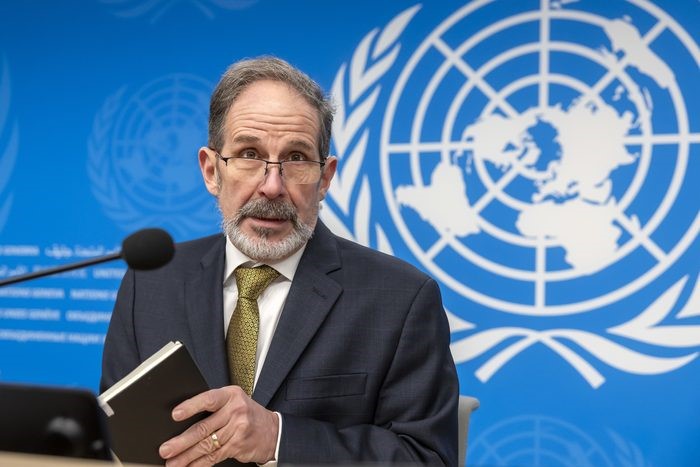

Geneva, 17 December 2024 – In a recent UN Briefing, Robert Petit, IIIM Head, highlighted the opportunities and challenges presented by the fall of the Assad rule. The IIIM, previously unable to access Syria, has now requested cooperation to enter the country as soon as possible.
The IIIM is prioritizing urgent investigations, leveraging existing networks and Syrian sources, and coordinating with international partners like COI Syria, IIMP, and OPCW. IIIM’s expertise in collecting and preserving evidence supports Syrian-led efforts to protect material for present and future justice efforts.
Mr. Petit emphasized the critical need to preserve evidence amidst rapidly developing and challenging context and engage with caretaker authorities. He noted the IIIM’s extensive documentation efforts, partnerships with Syrian civil society and international actors, and support for global jurisdictions in pursuing accountability.
https://webtv.un.org/en/asset/k18/k18ukqs934

© Keystone/Salvatore Di Nolfi
‘Bigger than Nuremberg’: the secret files that could jail Assad:


The Assad regime meticulously documented its atrocities over decades, creating a “bureaucracy of death” similar to Nazi methods, but modernized with digital tools. Thousands of documents, including those signed by Assad himself, detail systematic crimes such as mass detentions, torture, and executions. Evidence smuggled by groups like CIJA and the courageous Caesar files has been pivotal in linking Assad directly to these crimes.
Efforts to preserve this evidence continue, with organizations like the IIIM aiding justice mechanisms. While challenges persist, experts believe that accountability for Assad and his regime is achievable, marking a crucial step toward lasting peace in Syria.
Read the full article here.
‘There needs to be accountability’ – UN official
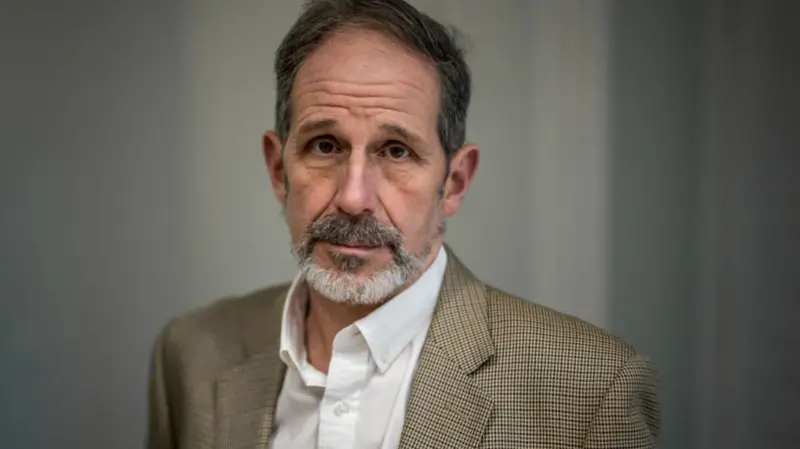

Robert Petit, Head of the IIIM, spoke to BBC Newsnight on 10 December, on the new opportunities for justice following the fall of the Assad regime.
Petit said: “There needs to be accountability, certainly for those most responsible for the architects of these crimes. And when it comes to lower level perpetrators, then various means of justice and accountability can take place.”
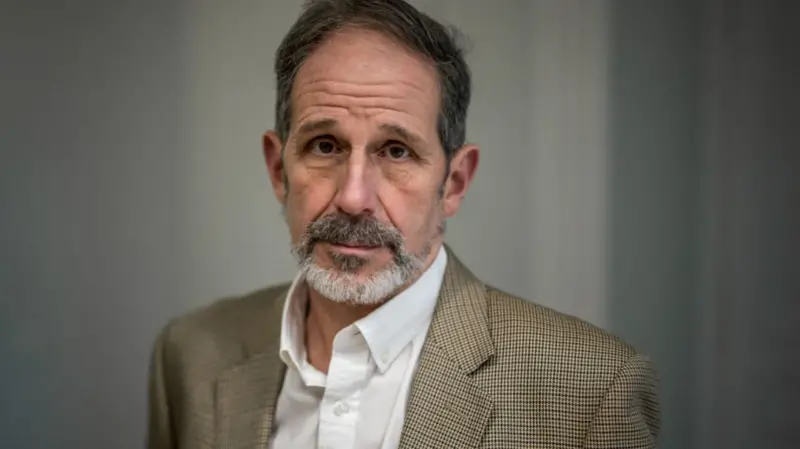
Read the full article here.
Radio France International Interview with Robert Petit


Robert Petit, Head of the IIIM, highlighted the vital need to preserve evidence of crimes committed in Syria during an interview with Radio France International, following the fall of the Assad regime.
Listen to the interview in French: here
IIIM Head’s Interview with Medi 1


Robert Petit, Head of the IIIM, joined Florence Blanc on Medi 1 to discuss the recent collapse of the Assad regime and the distressing images emerging from Syria.
He added, “We are now turning our focus to this opportunity for justice, though its exact form remains uncertain at this stage. This process must be guided by the will of the Syrian people. Accessing the crime scene is a priority, but the immediate need is to ensure the preservation and safeguarding of evidence. Syrian actors and current authorities have highlighted the critical importance of this effort. Preserving evidence is essential to guarantee its future use without questions of authenticity or origin, which are fundamentally crucial.”
Listen to the interview in French here
Statement from the International, Impartial and Independent Mechanism


Geneva, 8 December 2024 – Today’s events are historic. There is finally some hope for Syrians and their country to have a future based on justice and the rule of law. These are the fundamental principles on which the IIIM was created by the General Assembly in 2016.
We have all witnessed the poignant images of hundreds of detainees finally released from the notorious Syrian prisons system, a system that the IIIM has documented in an extensive Report released last Friday. Furthermore, we already have indications that, hour by hour, potential evidence of the Government repressive apparatus is becoming available, as fleeing regime agents retreat in haste.
Syrian individuals and civil society organizations have been at the forefront of accountability efforts, as first responders on the ground, as collectors and documenters, as witnesses and as advocates. We have seen in places like Rwanda and former Yugoslavia how essential it is to preserve high-value information and evidence in time and to do so in a way that allows for its use in court. By doing this, we can help Syrian, domestic and international courts and tribunals in the future to adjudicate events and contribute to a collective understanding of the past and an indisputable recounting of the truth.
While many Syrian civil society organizations have experience in preserving information and evidence, there might now be opportunities for others. This is why the Mechanism has produced guidelines to assist, which can be accessed on our website.
Accountability for the innumerable sufferings over the last 13 years should be central to future discussions and efforts of Syrians and the international community alike, to start addressing the widespread impunity for nearly every atrocity imaginable: from bombarding hospitals, the use of chemical weapons, systematic torture in Government-held prisons, widespread sexual and gender-based violence, and even genocide.
To bring about reconciliation and sustainable peace, we need to ensure credible and comprehensive accountability for violations of international humanitarian law and human rights violations and abuses through fair and independent proceedings in accordance with international standards. For decades, Syrians have endured injustices. They know firsthand that impunity breeds impunity. By ensuring that accountability is an integral part of the process, the international community has a historic opportunity to break this cycle.
In accordance with our mandate by the General Assembly, the Mechanism will continue to collect and preserve information and evidence of serious violations of international law and support current and future jurisdictions in providing some measure of justice for Syrians.
– ENDS –
Making Tech work for Global Criminal Justice


The use of technology in accountability efforts has evolved significantly, especially since the 2014 downing of Malaysian Airlines Flight 17. Digital tools, including open-source investigations, have transformed evidence collection and preservation. The International, Impartial, and Independent Mechanism for Syria (IIIM) exemplifies these advancements, with a mandate to centralize, analyze, and share evidence for accountability. Effective tech use requires strong information governance, reliable tools like optical character recognition, machine translation, and transcription systems, and robust workflows. However, challenges remain, including language disparities and over-reliance on AI. To optimize global accountability, investments must focus on skilled people, established technologies, and pragmatic strategies.
Read the full article here
IIIM Releases Analysis of Widespread Torture in Syria’s Detention System


Geneva, 6 December 2024 – The International, Impartial and Independent Mechanism (IIIM) today released a detailed report analysing the widespread and systematic commission of torture, ill treatment and related violations across more than 100 Government detention facilities in Syria. This includes analysis of inhumane detention conditions, sexual violence and enforced disappearances.
Titled “The Syrian Government Detention System as a Tool of Violent Repression”, the report draws on over 300 witness interviews, medical forensic evidence and the Syrian Government’s own documentation. Focusing on factual patterns and their systematic nature, consistent accounts of abuse emerge from the accounts of victims and survivors detained in Government facilities across Syria.
Robert Petit, Head of the IIIM, emphasized the significance of the report:
“Our report lays bare the harrowing reality within the Syrian Government detention system. The interview records of former detainees, corroborated by forensic medical evidence and an extensive body of other evidence, reveal the severity of the mental and physical harm that was intentionally inflicted.” On releasing this analysis, Mr. Petit said, “We are making the Detention Report public and widely available, to contribute to ongoing justice and accountability efforts, not only for past abuses but also those that continue to this day.”
Patterns in the Body of Evidence
Former detainees described severe physical and psychological abuse, including beatings, stress positions, and sexual violence. They reported horrific conditions, lack of hygiene, insufficient food and water, overcrowding, and denial of medical care. Many witnessed other detainees being tortured and killed.
The report includes descriptions of Syrian Government structures involved in the infliction of harms, including Government leadership and coordinating entities, intelligence branches, military hospitals and military police.
Impact on Families
The Detention Report also sheds light on the devastating impact on the families of disappeared detainees. The anguish and distress have caused long-term consequences for whole communities.
“Thousands of families bear the psychological toll of not knowing where their loved ones are,” Mr. Petit said. Speaking of the role of the Government, he added “This is unimaginable psychological torture, yet the Syrian Government continues to intentionally withhold and cover-up information that could address the agonising uncertainty.”
In accordance with witness protection considerations and consent limitations, the Detention Report has been released in redacted format. It is accompanied by supporting resources including an interactive map of approximately 100 detention facilities identified by witnesses, and an FAQ.
To view the report and other resources please go to the IIIM’s website https://iiim.un.org/
For more information, please contact: [email protected]
About the IIIM
The International, Impartial and Independent Mechanism (IIIM) is a United Nations organisation, established in 2016 by the UN General Assembly in a landmark vote. It is mandated to assist in the investigation and prosecution of individuals responsible for committing the most serious international crimes (including war crimes, crimes against humanity, and genocide) in Syria since March 2011.
The IIIM works to collect and preserve evidence from multiple sources to support current and potential future accountability proceedings. A significant number of its sources and information providers are Syrian civil society actors. The Detention Report relies on information and evidence from the IIIM’s Structural Investigation and includes evidence from multiple sources, including Syrian Government documents, CSO evidence collections, CSO reports, the IIIM’s witness interviews and direct evidence collection, the Caesar Files, medical forensic reports, national court proceedings, and reports of UN bodies and their communications with the Syrian Government.
The IIIM’s work can be used by jurisdictions with the legal authority to prosecute international crimes, thereby supporting accountability for atrocities committed during the Syrian conflict.
It shares information, evidence and analytical products either in response to requests for assistance or proactively with competent jurisdictions.
It integrates a victim survivor centred approach and proactive strategies on gender and children/youth throughout its work, holding regular consultations and engagements with Syrian civil society and victim/survivor communities.
It is not a court or tribunal; it cannot issue indictments or conduct trials and does not have prosecutorial powers.
The IIIM is:
- Independent: Works without external instructions or influences. It does not share details of the justice processes it supports publicly except as authorised by competent jurisdictions.
- Impartial: Works to cover all international crimes committed by all parties in the conflict, no matter the affiliation, without bias.
- Rigorous: Applies international criminal law methodologies throughout all tracks of its work.
Since the start of its operations the IIIM has maintained its efforts to initiate cooperation from the Syrian Arab Republic, in line with its commitment to impartial and inclusive justice. Although it has not yet received any response, it will continue to reach out to all States who may hold information and evidence relevant to its mandate.
-ENDS-
